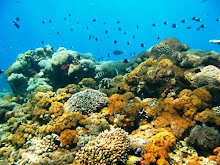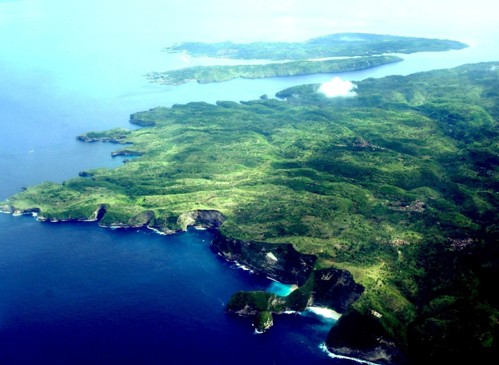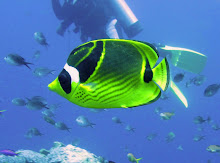Luh De Suriyani , Contributor , Denpasar Sat, 09/13/2008 9:58 AM Bali
Klungkung regency administration is drawing up a blueprint for a marine conservation zone around Nusa Penida, an island south of Bali, to help tackle illegal fishing and prevent the destruction of coral reefs in the area. Preparation of the blueprint was discussed Wednesday in a workshop attended by a number of stakeholders, including activists from the Nature Conservancy and officials from the Klungkung Environment Office and Klungkung Regional Development Planning Agency (Bappeda) and Nusa Penida district.
The discussion was considered long overdue because there has thus far been no integrated marine management concept in Nusa Penida. "(Marine) activities (in Nusa Penida) are currently conducted partially... But in line with rising interest in tourism development and coupled with problems of excessive fish exploitation, the idea of marine conservation in the area is becoming increasingly important," said Bappeda head Anak Agung Ngurah Kirana.
The marine conservation zone in Nusa Penida is expected to function as an effective tool to protect biodiversity and to enable sustainable management, especially for fishery and tourism purposes. The conservation zone is expected to consist of various levels of protection, including the introduction of a no-fishing area to protect existing breeding grounds for fish to supply nearby areas where fishing activities are allowed.
Another zone will allow the use of existing marine resources but only through the use of equipment which causes no damage to the marine habitat. The planned introduction of a marine conservation zone in Nusa Penida waters is considered unique and appropriate in that it is located on the southwest border of the world's Coral Triangle.
"The introduction of the conservation zone should have received serious attention, because the area constitutes the home of mola-mola and manta fish, two unique and endangered species which cannot be found elsewhere," said I Dewa Gede Raka Wiadnya, an environmental researcher at the TNC-Coral Triangle Center. The two types of fish, according he added, have become the favorites with divers.
Much of coastal Nusa Penida waters are used for seaweed cultivation, the main source of livelihood for many local residents. Now, however, Nusa Penida has rapidly changed into a center for marine tourism and beach attractions in Bali. Various issues are expected to be addressed in the conservation zone planning, including protecting the local source of livelihood.
I Dewa Gede Tegeh Menala, a prominent local figure, expressed concern over the operation of many trawlers in Nusa Penida waters, saying "Traditional fishermen are unable to compete with them." The result, he added, was predictable. Many fishermen have been forced to buy new boats and nets, and coupled with rising fuel prices, many have fallen victim to loan sharks.
"The fishermen's incomes remain low because the prices of their catches are usually set by the loan sharks," Tegeh said. He said he hoped the formation of the conservation zone would be realized as soon as possible. "I will develop cooperatives for the fishermen, to help them be independent of the loan sharks," he said.
Nusa Penida, which is located next to the two smaller islands of Nusa Lembongan and Nusa Ceningan, is visited by a large number of tourists. However, despite an increase in visitor numbers, Nusa Penida is still classified as a poor area. Agriculture there is fully dependent on the rains, with many residents abandoning this sector altogether.
source : http://www.thejakartapost.com/news/2008/09/13/nusa-penida-marine-conservation-blueprint-prepared.html
Senin, 22 September 2008
Langganan:
Posting Komentar (Atom)











Tidak ada komentar:
Posting Komentar